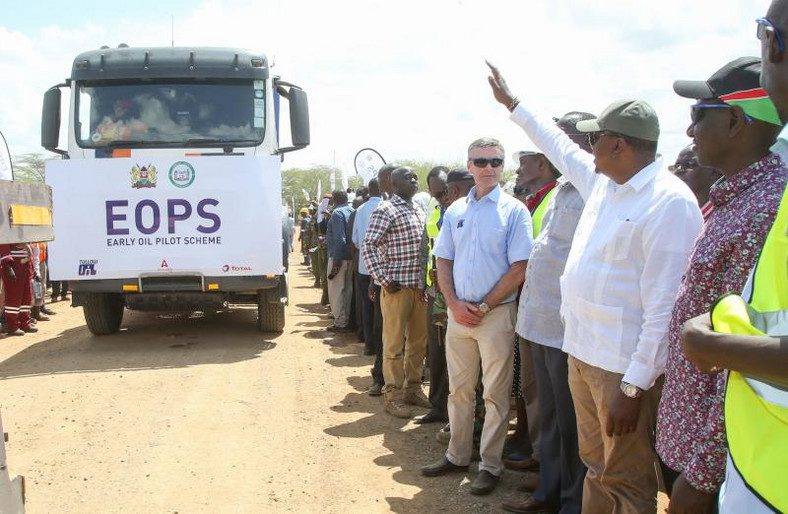The Buyers Of Kenya’s First Batch Of Crude Have Been Revealed But Most People Just Want To Know Where The Money Went

It’s been nearly a fortnight since Kenya’s President, Uhuru Kenyatta, made it public knowledge that the country’s very first batch of crude oil had been sold.
The President also revealed that this first sale was priced at KES 1.2 Bn (USD 12 Mn) but that was pretty much all that was made public as both the government and British firm, Tullow Oil Plc, opted to keep the identity of the firm that had bought Kenya’s first batch of light and sweet crude oil under wraps.
But the cat is finally out of the bag. On Thursday, Kenya’s Petroleum Principal Secretary, Andrew Kamau, revealed that a state-owned Chinese firm known as ChemChina Petrochemical had, in fact, bagged the deal to lift the crude oil from Mombassa; a move which saw Kenya enter into the league of the world’s oil-exporting countries.
According to the Principal Secretary, the Chinese oil firm got the government’s nod on account of the price it offered and standard international terms.
“Kenyan government and Tullow Oil Plc together with its Joint Venture Partners in Kenya (Total and Africa Oil Corp) are pleased to announce that ChemChina UK Ltd has been selected as the buyer for Kenya’s first crude oil export. The firm was selected on the basis of its offered price and according to standard international terms,” Mr. Kamau wrote in a response to inquiries on where the crude from Mombasa would be shipped.
The questions over who bought the product were raised due to concerns over how the sale of the crude will benefit Kenyans but even so, the latest revelation doesn’t exactly do much to dispel lingering worries.
Some of those worries are founded on uncertainties surrounding how much of the money realised will be shared between the government of Kenya and the Joint Venture Partners. And the fact that there is no public production sharing contract to make things clearer for everyone does not help matters.
Kenya’s Petroleum Act (2019) has provisions for profit sharing between the National Government (75 percent), County Government (20 percent) and the local community (five percent). But the grey area is in the amount to be split amongst the aforementioned parties.
That amount will only be known after the cumulative cost of the Early Oil Pilot Scheme is specified and a formula agreed on how the cost will be recovered. It’s kind of a waiting game for now, but with eyes peeled nonetheless.
Featured Image Courtesy: pulse.ng